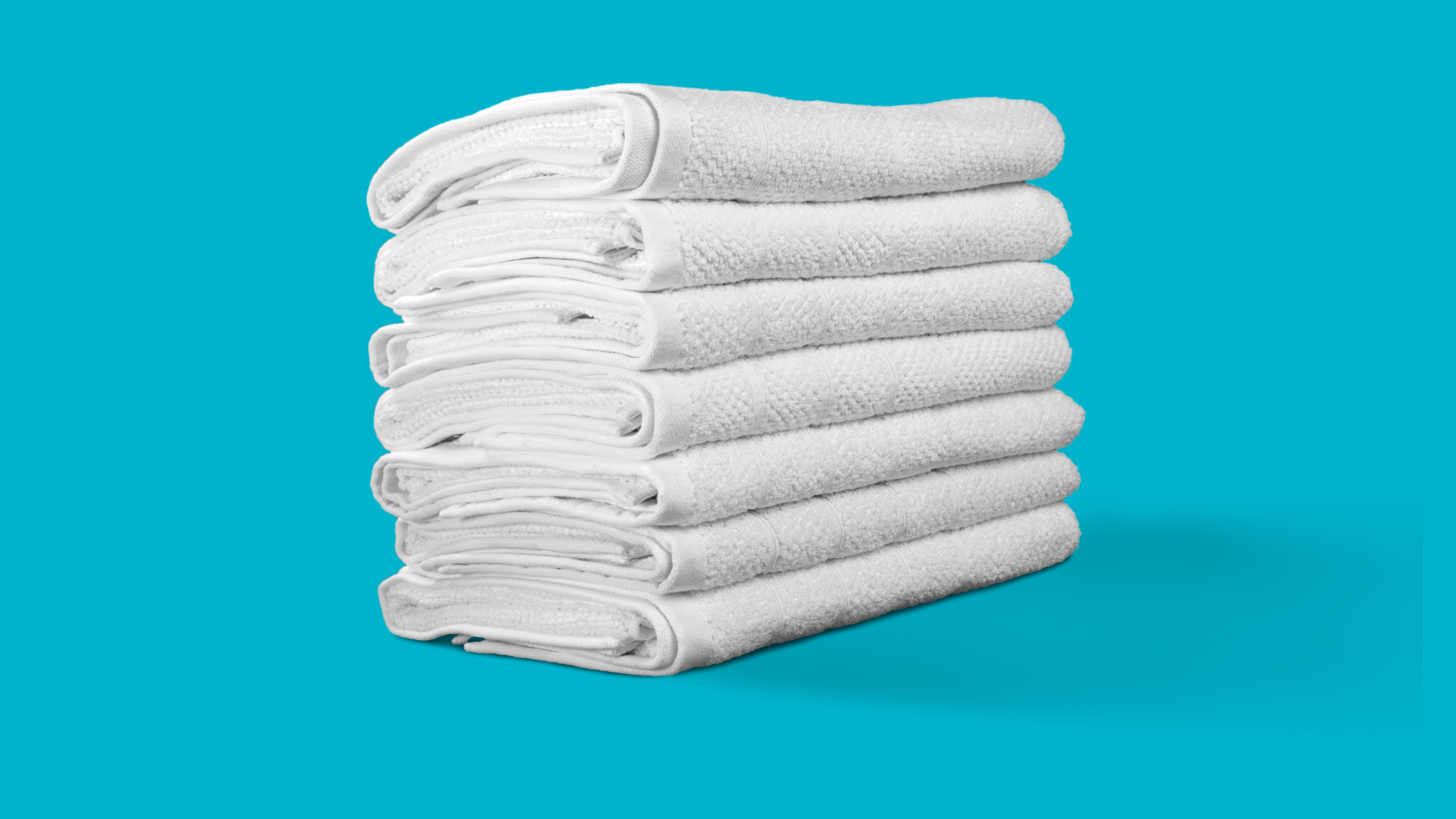Care Guide for Towels: How To Wash and Store
February 19, 2023
Towels are an essential household item that provides us with comfort and cleanliness. From bath towels to kitchen towels, towels come in a range of materials that require specific care to maintain their quality. Improper care can lead to mildew, fading, or even damage to the fabric. If you want to keep your towels looking and feeling great, it's essential to follow the proper washing and storing methods. In this guide, we'll provide you with some essential tips on how to wash and store your towels, so you can always have a clean, soft, and absorbent towel at hand.
WASH FREQUENCY
After 3-4 uses
STORAGE METHOD
Hang, Fold
The Right Way To Wash Towels
Washing Towels in the Washer
- Sort your towels by color and fabric type. Wash white towels separately from colored towels to prevent color bleeding.
- Pre-treat any stains by applying a small amount of detergent or stain remover directly to the affected area.
- Select a regular or heavy-duty cycle and use warm or hot water, depending on the fabric type. Hot water is effective in removing germs and bacteria from towels, but if your towels have decorative trim or are made of delicate fabric, use warm water instead.
- Add a full dose of detergent to the washer. Use a mild detergent without fabric softeners to avoid buildup that can make towels less absorbent over time.
- Start the wash cycle and wait until it's finished.
- Remove the towels from the washer and shake them out to fluff them up. You can also toss them in the dryer for a few minutes to remove wrinkles and loosen fibers.
- Hanging your towels on a clothesline or drying rack to air dry is the best way to preserve their quality. If you prefer to use a dryer, set it to a medium or high heat setting, and avoid over-drying, which can damage the fibers and make the towels rough and scratchy. Add dryer balls or clean tennis balls to the dryer to help fluff the towels as they dry.
Handwashing towels is not recommended since it can be time-consuming and laborious. However, if you have a delicate or decorative towel that requires handwashing, you can follow these steps:
- Fill a sink or basin with cool or warm water and add a small amount of mild detergent.
- Submerge the towel in the water and gently scrub it with your hands to distribute the soap.
- Rinse the towel thoroughly under running water to remove all the soap.
- Squeeze out the excess water and do not wring or twist the towel, as this can damage the fibers and cause it to lose its shape.
- Hang or lay the towel flat to air dry. Do not hang the towel by its edge or corner, as this can cause stretching and distortion.
Towels are not typically dry cleaned, as the chemicals used in the dry cleaning process can damage the fibers and reduce their absorbency. However, if you have a towel with delicate embroidery, beading, or other embellishments, you may need to have it professionally cleaned. Check the care label or contact the manufacturer for specific instructions.
How Often To Wash Towels
Towels are used to dry off after bathing and can absorb a lot of moisture and bacteria. They can be used a few times before needing to be washed, but should be washed every 3-4 uses to prevent the growth of bacteria and odors.

The Right Way To Store Towels
How to Hang Towels
- Fold the towel in half, then fold it in half again lengthwise.
- Hang the towel over a towel rack or hook by one of the corners to allow it to dry.
- Smooth out any wrinkles or creases.
- Lay the towel on a flat surface.
- Fold it in half lengthwise, then fold it in half again the same way.
- Fold it in half once more, this time widthwise.
- Smooth out any wrinkles or creases.
Expert Advice for Maintaining The Quality Of Your Towels
To keep towels in top shape, there are some pro tips you can follow. First, avoid using fabric softeners as they can reduce absorbency and make the towels less effective. Instead, add white vinegar to the rinse cycle to soften the fabric and remove any detergent residue. This will also help to remove any odors that may have accumulated over time. Another tip is to avoid over-drying towels, as this can damage the fibers and make them rough and scratchy. Instead, dry them on a medium or high heat setting for a short period, then remove them from the dryer while still slightly damp to allow them to air dry. It's also important to store towels in a dry, well-ventilated area to prevent mildew and mold growth. Finally, consider rotating your towels regularly to ensure even wear and tear, and always follow the care label instructions for best results.
DISCLAIMER
Just a friendly reminder that this care guide for towels only provides general advice. Your towels may have specific care requirements based on its material, style, and manufacturer instructions, so always check the care label before washing or storing it. If you're unsure about anything, it's always best to consult a professional cleaner. Please note that the author of this guide is not responsible for any damages or losses resulting from the use or misuse of any information from this blog.
Want to share this?
